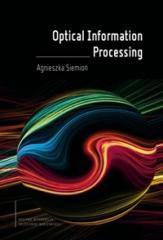Optical Information Processing
Dodano do ulubionych
Usunięto z ulubionych
Kod EAN: 9788378148944
• PRODUKT NIEDOSTĘPNY
Cena za szt.
15,23
PLN
cena z 5% VAT
Ilość
Produkt niedostępny w tej liczbie. Dostępna ilość:
Czas realizacji:
1-2 dni robocze
Koszt dostawy:
od 9,99 PLN
Zapytaj o produkt
Opis produktu
Parametry Produktu
Opinie
Zapytaj o produkt
→ Zostaw opinię!
Powiadom o dostępności








